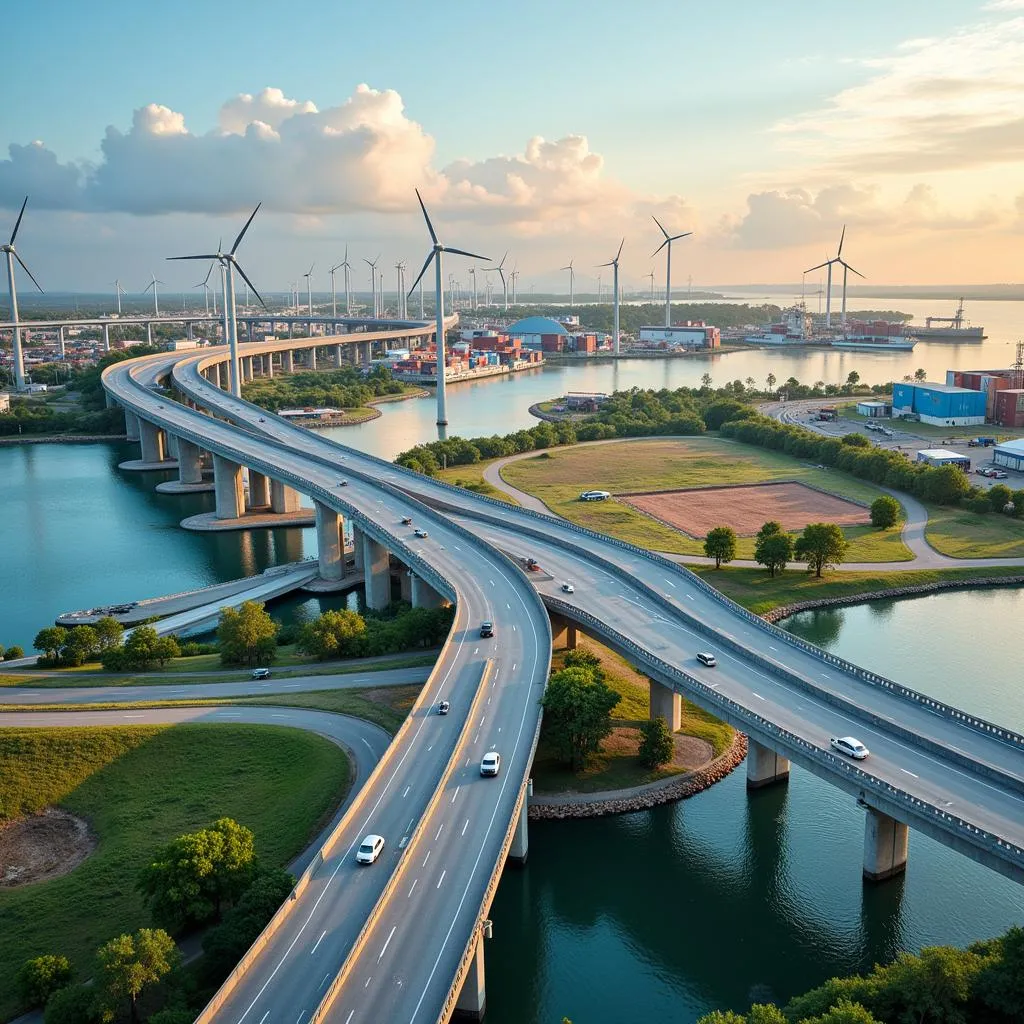Navigating the Rise of African Infrastructure Investment Managers
The African continent is no stranger to infrastructure challenges. From inadequate transportation networks to limited access to electricity and clean water, these obstacles have long hampered economic growth and development. However, a new breed of financial pioneers – African Infrastructure Investment Managers – are stepping up to bridge this gap and unlock the continent’s vast potential.
These investment managers are not just injecting much-needed capital into African infrastructure projects; they are bringing expertise, innovation, and a deep understanding of the local context. They are structuring deals that are not only financially viable but also contribute to sustainable and inclusive growth, impacting the lives of millions across the continent.
Understanding the Role of Infrastructure Investment Managers
Infrastructure projects are complex and capital-intensive endeavors. They require specialized knowledge, from project planning and risk assessment to financial structuring and stakeholder management. This is where infrastructure investment managers come in. These professionals act as intermediaries, connecting investors with promising infrastructure projects across Africa.
Think of them as the architects of Africa’s infrastructure boom. They carefully identify and evaluate potential projects, conduct thorough due diligence, and structure investment vehicles that mitigate risk while maximizing returns. Their expertise is vital in ensuring that projects are not only built but are also operated and maintained effectively, delivering long-term value to both investors and communities.
Key Drivers Fueling the Growth of Infrastructure Investment in Africa
Several factors are contributing to the surge in infrastructure investment across Africa, making it an increasingly attractive destination for both local and international investors:
- Rapid Urbanization: Africa’s cities are growing at an unprecedented rate, creating a huge demand for housing, transportation, energy, and other essential infrastructure. This presents a significant opportunity for investors seeking long-term returns.
- Technological Advancements: Innovations in renewable energy, digital infrastructure, and construction techniques are making it possible to develop and deploy sustainable and cost-effective solutions across the continent.
- Government Initiatives: Many African governments are actively promoting infrastructure development through policy reforms, public-private partnerships (PPPs), and investment incentives, creating a more favorable environment for private sector participation.
 Diverse infrastructure projects across Africa
Diverse infrastructure projects across Africa
Key Sectors Attracting Infrastructure Investment
While infrastructure needs span across various sectors, some areas are experiencing particularly strong investment activity:
- 1. Renewable Energy: With abundant solar and wind resources, Africa has the potential to become a global leader in renewable energy generation. Investment managers are actively channeling funds into solar farms, wind parks, and hydroelectric projects, bringing clean and reliable power to millions.
- 2. Transportation: Improving connectivity is crucial for unlocking Africa’s economic potential. Investments in roads, railways, ports, and airports are facilitating trade, reducing transportation costs, and connecting people to opportunities.
- 3. Digital Infrastructure: The rapid adoption of mobile technology is driving demand for data centers, fiber optic networks, and other digital infrastructure. Investment managers are seizing the opportunity to bridge the digital divide and unlock the transformative power of technology across the continent.
The Impact of African Infrastructure Investment Managers
The work of these dedicated professionals is already making a tangible difference in the lives of millions across Africa:
- Economic Growth and Job Creation: Infrastructure projects create jobs not only during construction but also in the operation and maintenance phases, stimulating local economies and fostering sustainable development.
- Improved Living Standards: Access to reliable electricity, clean water, and efficient transportation systems improves health outcomes, enhances educational opportunities, and empowers communities.
- Regional Integration: Infrastructure projects that connect countries and regions facilitate trade, promote cultural exchange, and foster greater cooperation among African nations.
 A thriving African community empowered by new infrastructure
A thriving African community empowered by new infrastructure
Looking Ahead: The Future of African Infrastructure Investment
The journey to bridge Africa’s infrastructure gap is ongoing. As the continent continues to grow and evolve, so too will the role of infrastructure investment managers.
What trends are shaping the future of this dynamic sector?
- Focus on Sustainability: Environmental, Social, and Governance (ESG) factors are playing an increasingly important role in investment decisions. Investment managers are prioritizing projects that not only generate financial returns but also align with sustainability goals.
- Technological Integration: From artificial intelligence and drones to smart grids and digital twin technology, innovation is transforming the infrastructure landscape. Investment managers are embracing these advancements to optimize project efficiency, enhance sustainability, and maximize impact.
- Local Empowerment: There is a growing emphasis on ensuring that infrastructure projects benefit local communities. Investment managers are increasingly partnering with local businesses, creating job opportunities, and fostering skills development within the communities where they operate.
Conclusion
African infrastructure investment managers are at the forefront of a transformative era for the continent. By channeling capital into vital projects, fostering innovation, and prioritizing sustainability, they are not just building roads, bridges, and power grids; they are building a brighter future for Africa.
As the continent continues on its path of growth and development, the expertise and dedication of African infrastructure investment managers will be essential in unlocking its full potential and creating a more prosperous and sustainable future for all.

